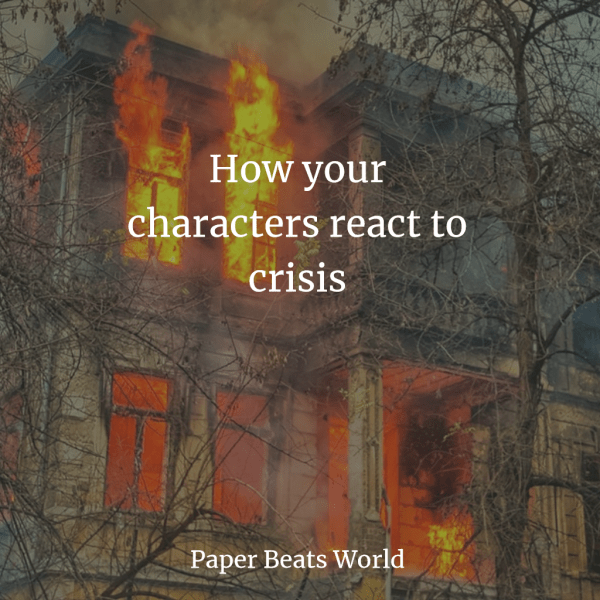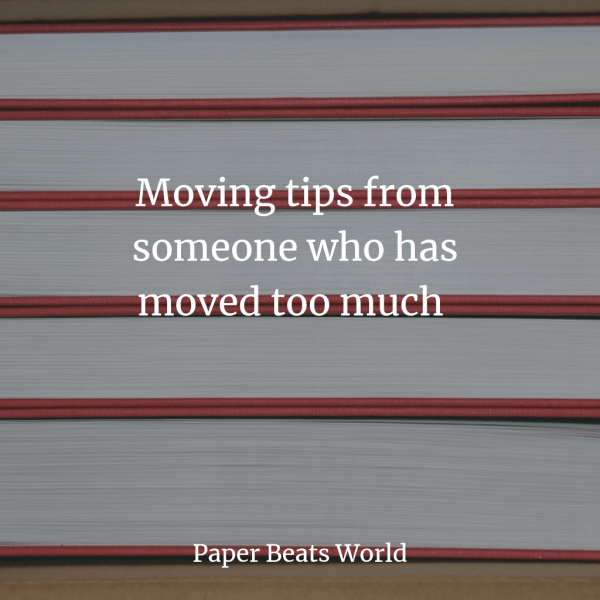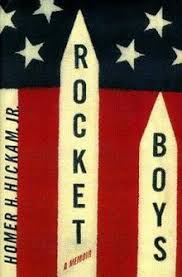I’ve moved a lot in my life. Like, a lot a lot. And I hate it every single damn time. I always lose things, and they’re always the things I like best. One time I got a whole box of DVDs stolen. I always hurt myself and it always takes up way more time than I think it should. And, of course, I’m a writer and avid reader. So, the majority of my house is full of books, notebooks and assorted bits of paper.
You never really realize how much paper weighs until you’re trying to move a house full of it.
As someone who’s moved as often as I have, I’ve naturally learned a lot about the process. And I always say that the easier the rest of your life is, the more time you can spend writing. So, allow me to share with you some moving tips that I’ve picked up along the way. Hopefully, if you’re forced to move at any point in your life, my hard-won lessons might help you.
Start packing before you find a place.
As soon as I realized I was going to be moving, I started packing. Obviously not things that I needed daily, or even things I thought I might need in the next two months. I started packing away things like my basement, and all my holiday decorations. I pack anything I could that I didn’t use in my day to day life before I even knew where I’d be unpacking it.
The reason for this is simple. There’s a lot more in your house than you realize, and it’s going to take more time than you realize to pack it all. So the sooner you get started the better. Especially since you don’t know how quickly you might have to move once you find a new place.
Don’t clean as you go.
I know, that doesn’t sound right. But here’s the thing. If you’re vacuuming and moping before you move all the boxes and furniture out, guess what? You’re going to have to vacuum and mop all over again. The same goes for washing walls and cleaning out the bathroom. It’s better to wait until everything is out of the old place and start cleaning then.
The FlyLady is always right.
Just as I was realizing I was going to have to move, the Flylady sent out an exceptionally well-timed email about moving. She suggested using her Crisis Cleaning method to pack your house. If you don’t know what her Crisis Cleaning method is, click here. Basically, you pick three rooms, work for 15 minutes in each room, then rest for 15 minutes. I did this almost the whole time I was packing and cleaning my old place. It really helped me not hate the whole process.
Schedule the movers as soon as possible.
I didn’t realize how quickly movers got booked before I tried to schedule them for the last week of June. I actually ended up having to delay my move another week because I couldn’t get anyone in time. So, as soon as you know when you’ll need the movers, book them.
There’s no better time for an audiobook or podcast.
There’s no getting around the fact that moving is boring! Straight up, I hate packing and cleaning. There were a few weeks when I was doing almost nothing but packing and cleaning. So I passed the time listening to podcasts and audiobooks. Music is great, don’t get me wrong. But it’s not as entertaining as a story.
Drink your water
I was moving during a heat wave. Like an actual, there was heat index warnings every damn day heat wave. So I was super careful to drink water all the time so I didn’t, you know, die.
No matter when you’re moving, though, you need to be drinking your water. Moving is usually more exercise than people are accustomed to getting unless you’re in the habit of working out for several hours a day on the regular. So, don’t neglect your water.
And don’t underestimate the restorative power of a good strong cup of tea.
Use small boxes
I have a lot of books, duh. And books are heavy, also duh. That’s why it’s so important to use small boxes when I’m moving. Boxes that are small enough to be light enough for me to carry without pulling a muscle. Yes, this does mean I might make more trips to the car or moving truck. But at least I won’t throw my back out. Because trust me, if that happens, you’re done moving. Whether you’re done or not, you’re done.
Be aware of your pets at all times
Even if your pets are super chill, they might not be while you’re moving. All the activity, all the commotion, all the strangers in the house on their territory, moving their stuff will mess with the most laid-back animal. (Because you know, it’s all their stuff, not yours.) A cat or dog might well take the opportunity to take off for a few days, expecting you to be there when they come back and things will be calmed down. And you might not be.
My dog and cat spent lots of time in the bathroom while I was moving. They weren’t happy with me, but at least they didn’t vanish.
Give yourself some grace.
When I realized that the movers weren’t going to be available until after my original move out date, I called my landlady and asked her for a few extra days. When the movers didn’t show up until six in the evening, I did it again. At both times, my landlady was totally cool with it.
I could have been totally anal and insisted upon getting everything done by the original date. I could have knocked myself out and worked around the clock to get out even faster if I wanted. I could have saved myself some money, too, and not hired movers.
But I didn’t do any of that, because I couldn’t afford to devote all of myself to this move. I have a book launching this month, on the 13th. I have another book I’m editing. I have a day job, and the desire to not throw my back out.
I gave myself the grace I needed, in other words, to get done what needed to be done in the healthiest way possible. Remember, moving is a huge job, stressful physically and emotionally. I left a whole different version of myself behind at my old house, and that was an emotionally taxing thing.
Even if you’re moving for the best of reasons, it’s emotional. So give yourself some grace.
So, what do you think? What’s the best moving tip you’ve ever heard? Are you moving any time soon? Let us know in the comments below.










 the baby boomers. That generation looked to the sky and wanted so desperately to make it to the moon. I have an inherent fascination with the generations that came before my own. I think I’m trying to fill a hole in my history. While I have many stories of my family, I have heard little to nothing about what the greater world around them was like before I came along. Part of it is my fault. I don’t talk to my family much, and when I was a child I was never interested in hearing those sorts of stories. I never thought to ask. But I never thought to ask partly because great world events weren’t discussed much in my family. It just wasn’t something we talked about.
the baby boomers. That generation looked to the sky and wanted so desperately to make it to the moon. I have an inherent fascination with the generations that came before my own. I think I’m trying to fill a hole in my history. While I have many stories of my family, I have heard little to nothing about what the greater world around them was like before I came along. Part of it is my fault. I don’t talk to my family much, and when I was a child I was never interested in hearing those sorts of stories. I never thought to ask. But I never thought to ask partly because great world events weren’t discussed much in my family. It just wasn’t something we talked about.  there are ties between the two places. Sonny grew up in a coal mining town, I grew up in a steel town. There’s an obvious connection there, and so I feel that there’s a connection between Sonny and me. He had his rockets, I have my stories. We both have the small towns that are more home to us than any one building. Places that will never leave us, even if we leave them. Even, in his case, if the town itself is gone.
there are ties between the two places. Sonny grew up in a coal mining town, I grew up in a steel town. There’s an obvious connection there, and so I feel that there’s a connection between Sonny and me. He had his rockets, I have my stories. We both have the small towns that are more home to us than any one building. Places that will never leave us, even if we leave them. Even, in his case, if the town itself is gone.
Recent Comments